Precision oncology has shifted, yet pharmacists’ roles remain underutilized.
Alana Hippensteele is lead editor at Pharmacy Times®, Contemporary Clinic, and Pharmacy Times Oncology Edition®. She has a master's in Critical Theory and Creative Research from Pacific Northwest College of Art and a bachelor's degree in English and Art History. She has worked as an English instructor at Temple University and held editorial positions at American Cleaning & Hygiene and Tin House.

Precision oncology has shifted, yet pharmacists’ roles remain underutilized.
Oncology pharmacists are increasingly shaping patient care.

Pharmacists optimize biosimilar and 505(b)(2) use through collaboration, education, and integration.

Oncology pharmacists can lead value-based care integration under EOM with data-driven strategies.
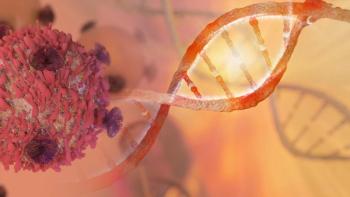
Glofitamab-GemOx improves survival in transplant-ineligible patients with R/R DLBCL.

Eileen Peng, PharmD, discusses how her team has restructured pharmacy services to support outpatient administration of CAR T-cell and bispecific therapies—emphasizing multidisciplinary collaboration, early toxicity management, real-world data integration, and pharmacist-led care transitions to ensure safety and continuity across care settings.

Two pharmacy leaders at UNC Health share how their distinct yet complementary leadership journeys and skill sets are driving innovation in clinical practice, education, and team development across the health system.

LeAnne Kennedy, PharmD, BCOP, CPP, FHOPA, FASTCT, discusses the collaborative culture, research opportunities, and leadership pathways that define oncology pharmacy practice at Atrium Health Wake Forest Baptist, while emphasizing the importance of advocacy and visibility for the profession.

Kirk Knowlton, MD, discusses findings from the V-INCEPTION trial evaluating inclisiran for low-density lipoprotein cholesterol (LDL-C) management after myocardial infarction, highlighting its real-world effectiveness, tolerability, and potential for integration into pharmacist-led lipid care pathways.
Julio C. Chavez, MD, MS, discusses the distinct pharmacologic profile, clinical activity, and outpatient potential of golcadomide plus rituximab in relapsed/refractory follicular lymphoma, highlighting its selective cereblon modulation, fixed-duration dosing, and promising efficacy in heavily pretreated patients.

Selective reporting and underrepresentation distort biomedical evidence, affecting pharmacy practice
Julio C. Chavez, MD, MS, discusses updated data from the European Hematology Association (EHA) 2025 Congress on the investigational oral CELMoD agent golcadomide (GOLCA) plus rituximab in relapsed/refractory diffuse large B-cell lymphoma (R/R DLBCL).

Jennifer Goldman, PharmD, CDCES, BC-ADM, FCCP, discusses the expanding role of GLP-1 receptor agonists in holistic type 2 diabetes care, highlighting their cardio-renal-hepatic benefits, clinical access challenges, emerging investigational therapies, and practical strategies for individualized, guideline-based prescribing.

George Wang discusses the widespread financial barriers patients with cancer face, the environmental and economic toll of oncology drug waste, and how pharmacist-supported medication donation programs can safely and legally redistribute surplus cancer treatments to patients in need.

Jeffrey I. Weitz, OC, MD, FAHA, FRCPC, FACP, FRSC, FACC, FESC, FCAHS, discusses AZALEA-TIMI 71 trial data showing that the long-acting factor XI inhibitor abelacimab is associated with low periprocedural bleeding risk, supporting potential simplification of anticoagulation protocols for most elective and some urgent procedures.

Joel Stanley of Ajna Biosciences reflects on the regulatory challenges surrounding MDMA-assisted therapy, outlines lessons for future psychedelic drug trials, and emphasizes the importance of scientific rigor, interdisciplinary infrastructure, and the evolving role of pharmacists in ensuring safe clinical integration.

Ochsner partners with Latent Health to utilize clinical artificial intelligence (AI), speeding prior authorizations, improving pharmacy efficiency, and increasing patient access to medications.

Carrie Harney, JD, of US Pharmacopeia (USP) discusses how proposed tariffs could impact generic drug supply chains, sterile injectable shortages, and pharmacy operations, underscoring the need for policy incentives and manufacturing diversification.

Sundar Jagannath, MD, discusses how prophylactic tocilizumab reduced cytokine release syndrome incidence and severity with talquetamab in relapsed or refractory (R/R) multiple myeloma.

Andrew H. Wei, PhD, discusses phase 1b findings on the safety, pharmacokinetics, and preliminary efficacy of combining the menin inhibitor bleximenib with venetoclax and azacitidine in patients with newly diagnosed or relapsed/refractory acute myeloid leukemia (AML) harboring NPM1 mutations or KMT2A rearrangements.

Omolola (Lola) Adeoye-Olatunde, PharmD, MS, discusses findings from a multi-year analysis of American Association of Colleges of Pharmacy (AACP) institutional data on faculty and graduate student representation in pharmacy education, highlighting persistent disparities and offering actionable strategies to improve equity and inclusion in the academic pipeline.
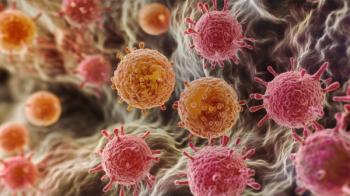
Nikita Dahake, MD; Hossein Borghaei, DO, MS; and Yasmine Baca, MS, PhD candidate, MB(ASCP)CM, explore how distinct HER2-alteration subtypes in non-small cell lung cancer (NSCLC) impact survival outcomes, co-mutation profiles, and treatment response to immunotherapy-based regimens.

Franck Morschhauser, MD, PhD, discusses the novel cereblon-dependent bifunctional degrader BMS-986458, highlighting its selective targeting of BCL6, promising early efficacy in relapsed/refractory lymphoma, favorable safety profile, and future potential in combination regimens and earlier treatment lines.
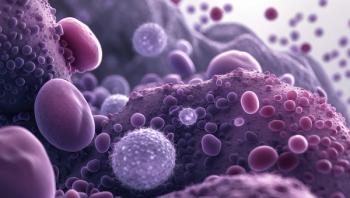
The updated version 1.2026 NCCN Guidelines for chronic myeloid leukemia (CML) emphasize individualized treatment strategies, TKI-specific considerations, drug interaction management, and pregnancy safety, highlighting the critical role of oncology pharmacists in optimizing therapy selection, patient counseling, and cost-effective care.

The National Comprehensive Cancer Network (NCCN) has released multiple myeloma guidelines version 2.2026 to include linvoseltamab as a preferred treatment for heavily pretreated patients, highlighting its intravenous formulation, dosing options, and streamlined Risk Evaluation and Mitigation Strategy program.

NCCN updates ovarian cancer guidelines, emphasizing personalized maintenance therapy with niraparib for HR-deficient patients, enhancing oncology pharmacists' roles.

Laura R. Bobolts, PharmD, BCOP, shares actionable strategies for oncology pharmacists to navigate biosimilar and 505(b)(2) drug implementation, manage payer and formulary complexities, and optimize cost-effective care delivery across oncology service lines.

Kirollos S. Hanna, PharmD, BCPS, BCOP, FACCC, FAPO, discusses how oncology pharmacists can lead value-based care efforts under the Enhanced Oncology Model (EOM) by improving care coordination, managing costs, aligning with performance metrics, and leveraging clinical data systems to enhance patient outcomes.

Kirollos S. Hanna, PharmD, BCPS, BCOP, FACCC, FAPO, discusses the value of the 2025 ATOPP Summit in advancing oncology pharmacy through collaboration, innovation, and actionable strategies aligned with evolving value-based care models.

The 2025 National Lipid Association (NLA) Scientific Sessions highlighted a strategic shift toward early, aggressive cardiometabolic intervention, underscoring the vital role of pharmacists in implementing emerging therapies and optimizing cardiovascular risk reduction.

Published: June 2nd 2025 | Updated: June 11th 2025

Published: March 12th 2025 | Updated: March 18th 2025

Published: June 20th 2025 | Updated:

Published: October 3rd 2022 | Updated:

Published: May 7th 2021 | Updated:

Published: May 17th 2025 | Updated: